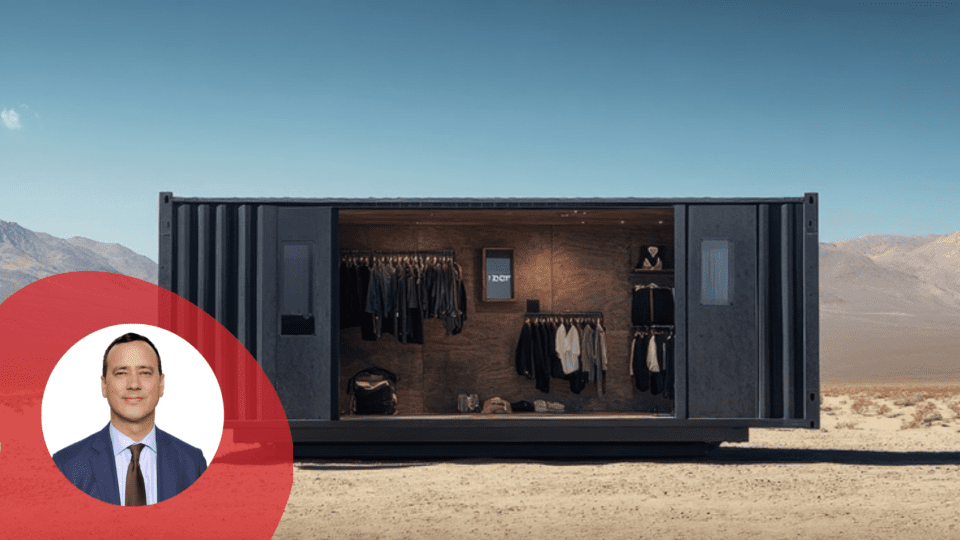Fashion brands are leveraging pop-ups to create buzz, showcase limited-edition collections and connect with customers in immersive, high-energy environments. Pop-ups offer unique advantages — generating hype, encouraging competition for exclusive products, and allowing brands to test new markets — but they also come with important legal and business considerations.
If you’re planning a pop-up, here are four key legal and business factors to keep in mind:
1. The Real Estate Dynamic
A pop-up’s real estate structure is a defining characteristic, as brands typically opt for temporary spaces rather than long-term storefronts. While this can be a budget-conscious alternative to traditional retail, the legal implications can vary significantly depending on whether you enter into a:
- Lease Agreement – More structured, often requiring multi-month or longer commitments with tenant obligations.
- License Agreement – More flexible, granting permission to use a space temporarily without long-term liability.
Brands must also ensure permitted use and zoning laws allow for retail and promotional events, especially during high-traffic periods like New York Fashion Week. If the space requires modifications (e.g., branded installations, lighting adjustments), it’s critical to clarify who is responsible for costs and restorations.
2. Joint Ventures and Business Collaborations
Pop-ups are often collaborative ventures among designers, influencers, retailers and investors. Whether it’s a co-branded event or a brand partnering with a third-party venue, having clear contractual agreements is essential.
- Profit-sharing arrangements should be outlined in advance.
- Investment contributions and operational responsibilities must be clearly defined.
- Branding and intellectual property ownership should be agreed upon in writing to avoid future disputes.
A joint venture agreement or collaboration contract is key to ensuring a smooth business relationship before the pop-up goes live.
3. Tax and Permitting Considerations
The temporary nature of pop-ups can trigger unexpected tax obligations and licensing requirements, particularly if the event is held in a different city or state. Brands should be aware of:
- Sales tax registration in new jurisdictions where they plan to sell products.
- Special event permits or business licenses required for pop-up operations.
- Signage, alcohol sales or occupancy restrictions, depending on the location.
To avoid compliance issues, brands should consult a business attorney or tax specialist ahead of time.
4. Employee Classification and Labor Compliance
Fashion pop-ups often lead to temporary staffing spikes, requiring additional retail associates, brand ambassadors or independent contractors. Employers must ensure compliance with local and federal employment laws, including:
- Proper classification of workers (full-time employees vs. independent contractors).
- Minimum wage and overtime regulations in the state or city of operation.
- Workers’ compensation and liability insurance coverage for temporary staff.
Failing to adhere to local employment laws can lead to costly legal consequences, so brands should carefully review hiring contracts and labor guidelines before onboarding temporary staff.
Beyond the legal considerations, pop-ups are designed to leverage exclusivity, urgency and competition among consumers. Whether it’s a high-profile fashion activation during an annual event like New York Fashion Week or a seasonal event, brands should structure their operations to:
- Build hype with limited product volume, increasing demand.
- Create a seamless purchasing experience, whether through mobile checkout, online reservations or exclusive memberships.
- Ensure intellectual property protection, especially for unique pop-up concepts that may be replicated by competitors.
By addressing these legal and business factors before launching, fashion brands can focus on what pop-ups do best — creating buzz, driving sales and engaging customers in memorable ways.
Final Thoughts
While pop-ups are a dynamic and innovative retail model, they require careful legal and strategic planning. Whether you’re debuting a new collection, testing a market or hosting a collaborative event, getting ahead of real estate concerns, tax obligations, employment laws and partnership agreements is essential for a smooth and successful activation.
Ben Thompson is the Managing Partner of Thompson LLP in New York. He represents public and private companies in a variety of corporate matters including mergers and acquisitions, corporate governance and general transactional matters, often based in or involving complex intellectual property issues. Thompson has represented buyers, sellers and other interested parties in acquisitions, divestitures, investments and strategic alliances. In addition, he serves as outside general counsel to multiple private companies, advising on a broad range of operational and governance matters. Thompson is an adjunct professor at the Parsons School of Design at The New School, where he teaches business regulations and practices.








